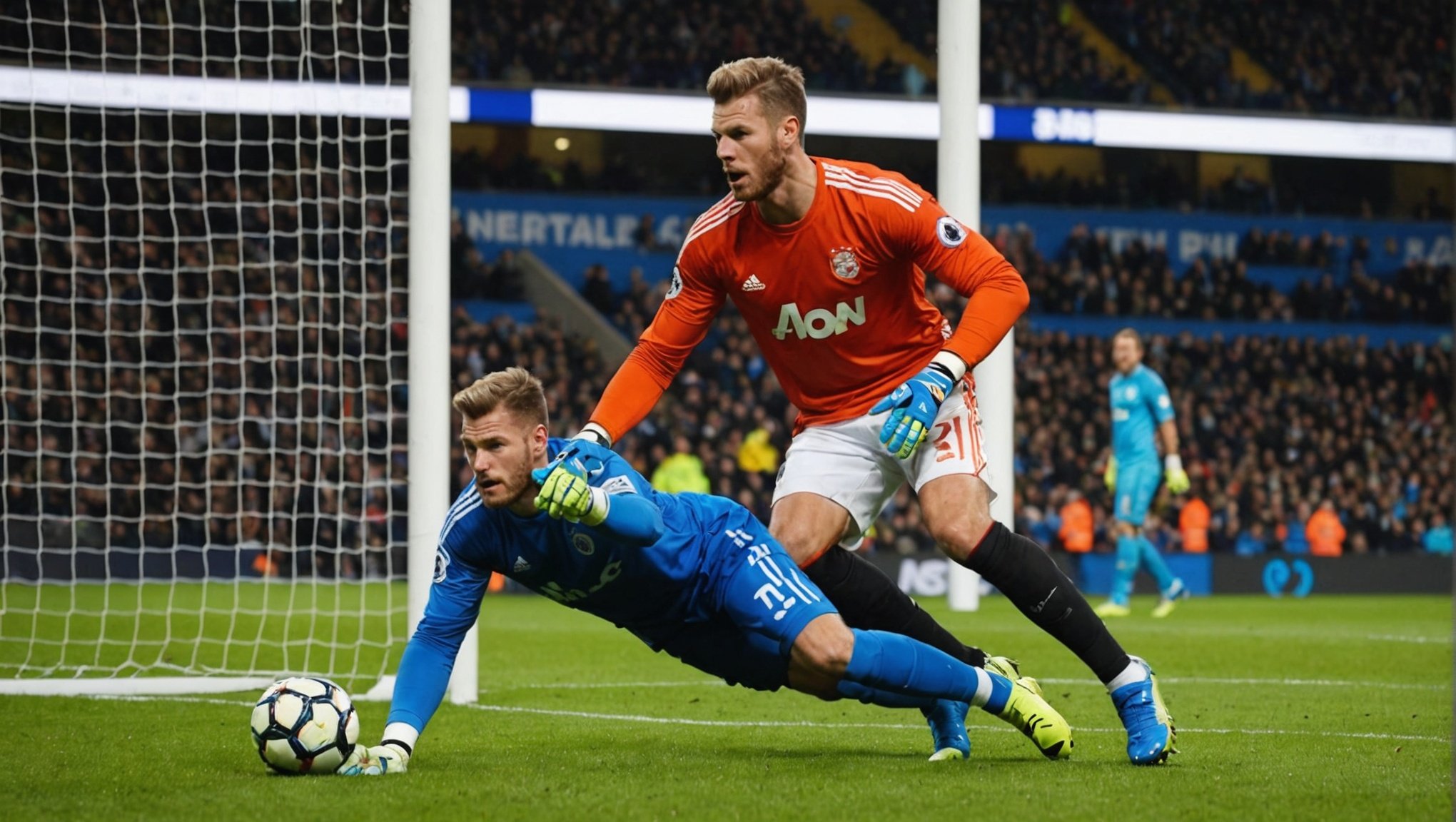Football goalkeepers often face intense pressure on match day. Mental fortitude can be just as important as physical skill. Mastering mental preparation strategies not only enhances focus but also builds confidence. This guide uncovers essential techniques to help goalkeepers elevate their game before stepping onto the pitch. Whether it's visualization, breathing exercises, or mindfulness, these strategies can make a tangible difference, enabling goalkeepers to perform at their best. Discover how to transform pre-match routines into powerful mental tools for success.
Importance of Mental Preparation for Goalkeepers
Understanding the role of mental preparation is crucial in enhancing a goalkeeper's performance. In football, goalkeepers face unique challenges, requiring them to maintain intense pre-match focus. The ability to anticipate opponents' moves, react swiftly, and make split-second decisions is not just physical but deeply rooted in mental resilience.
In the same genre : Unlocking Local Loyalty: Innovative Community Engagement Strategies for Football Clubs
Challenges Faced by Goalkeepers
Goalkeepers often encounter isolation during matches, as their role is distinct from outfield players. This isolation can amplify pressure, making mental preparation essential. They must be ready to engage at any moment, often with little warning. The unpredictability of the game demands a high level of mental resilience.
Impact of Mental Resilience
The correlation between goalkeeper performance and mental resilience is significant. A well-prepared mind can manage stress, maintain concentration, and recover from mistakes efficiently. This mental fortitude directly influences match outcomes, as goalkeepers are often the last line of defense.
Topic to read : Unlocking Peak Performance: The Impact of a Football Player”s Nutrition on Agility and Endurance
- Mental Preparation enhances decision-making
- Pre-Match Focus boosts confidence
- Mental Resilience aids in stress management
In conclusion, cultivating these mental skills is as vital as physical training, ensuring goalkeepers remain steadfast under pressure. By focusing on mental preparation, goalkeepers can elevate their performance and contribute significantly to their team's success.
Effective Mental Strategies for Goalkeepers
Exploring effective mental strategies can significantly enhance a goalkeeper's performance on the field. These strategies include visualization techniques, breathing exercises, and positive affirmations, each playing a pivotal role in focus enhancement.
Visualization Techniques
Visualization is a powerful tool for goalkeepers. By vividly imagining successful saves, goalkeepers can boost their confidence and mental resilience. This method involves creating detailed mental images of match scenarios, allowing goalkeepers to rehearse their responses. Visualization not only prepares the mind for action but also reinforces positive outcomes.
Breathing Exercises
Calming the mind is essential for maintaining focus during high-pressure situations. Breathing exercises are a practical mental strategy that helps goalkeepers manage stress and anxiety. Simple techniques like deep breathing can slow the heart rate and clear the mind, enabling goalkeepers to remain composed and attentive.
Positive Affirmations
Positive affirmations can transform a goalkeeper's mindset. Repeating encouraging statements helps build self-belief and enhances mental resilience. By focusing on strengths and capabilities, goalkeepers can overcome self-doubt and maintain a pre-match focus.
- Visualization Techniques: Imagery for confidence
- Breathing Exercises: Calm nerves, enhance focus
- Positive Affirmations: Boost self-belief
Incorporating these mental strategies not only enhances goalkeeper performance but also ensures they are mentally prepared for any challenge.
Building Confidence Through Routine
Establishing consistency is key to success.
Importance of a Consistent Pre-Match Routine
For goalkeepers, building confidence is essential, and a consistent pre-match routine plays a pivotal role. A well-established routine helps in grounding the goalkeeper, providing familiarity and comfort. This consistency translates into confidence building, as goalkeepers feel prepared and focused.
Examples of Successful Goalkeepers' Routines
Many successful goalkeepers have specific habits that contribute to their performance. For instance, some engage in visualization exercises, while others rely on specific warm-up drills. These routines are not just physical but also mental, enhancing confidence and readiness. A glimpse into their habits provides valuable insights for aspiring goalkeepers.
Psychological Benefits of Rituals and Habits
The psychological benefits of maintaining a pre-match routine are significant. Rituals and habits help in reducing anxiety, promoting mental resilience, and ensuring a positive mindset. This structured approach aids in confidence building, allowing goalkeepers to approach each match with assurance and poise.
- Pre-Match Routine: Establishes familiarity
- Confidence Building: Enhances focus
- Goalkeeper Habits: Boosts performance
Incorporating these elements into a goalkeeper's routine can lead to improved performance, reinforcing the vital connection between mental preparation and success on the field.
Psychological Tips from Professional Goalkeepers
Insights into the mental game of goalkeeping.
Interviews with Professional Goalkeepers
Professional goalkeepers offer invaluable insights into the psychological aspects of their role. Through interviews, they reveal how mental preparation is integral to their success. A common theme is the importance of goalkeeper psychology, which encompasses maintaining focus and resilience. As one goalkeeper noted, "Mental strength is as crucial as physical ability."
Key Takeaways from Their Experiences
From these professional insights, several key takeaways emerge. First, the use of mental routines to foster confidence and composure. Second, the significance of visualization and positive self-talk in boosting performance. These strategies are not just for professionals; they are adaptable for all levels.
- Focus on mental routines
- Visualization for confidence
- Positive self-talk enhances performance
Adaptation of Their Techniques for Amateur Players
Amateur goalkeepers can benefit by adapting these expert techniques. Incorporating goalkeeper psychology into training can enhance mental resilience. By embracing professional insights, amateur players can develop their own mental strategies, ensuring they remain composed under pressure.
The application of expert advice helps bridge the gap between amateur and professional levels, making these psychological strategies accessible to all aspiring goalkeepers.
Resources for Further Development
Exploring avenues for enhanced performance.
Recommended Books and Articles
For those seeking to deepen their understanding of sports psychology and enhance goalkeeper development, several resources are invaluable. Books like "The Psychology of Goalkeeping" offer insights into mental strategies specific to goalkeepers. Articles in journals such as "Journal of Sports Psychology" provide research-backed methods for mental training. These resources are essential for those aiming to refine their mental game.
Online Courses and Workshops
The digital age offers numerous opportunities for mental training resources through online courses and workshops. Platforms like Coursera and Udemy provide courses tailored to goalkeeper development, focusing on sports psychology principles. These courses are designed to be accessible, allowing goalkeepers to learn at their own pace and apply techniques immediately.
The Role of Sports Psychologists
Sports psychologists play a crucial role in athlete development. They offer personalized mental training programs that cater to individual needs, enhancing goalkeeper development. By working closely with athletes, they help in building resilience and focus. This professional guidance is a cornerstone of effective mental training resources.
- Books and Articles: Key for theoretical understanding
- Online Courses: Flexible learning options
- Sports Psychologists: Personalized athlete support
These resources collectively contribute to a comprehensive approach to mental training and goalkeeper development.













